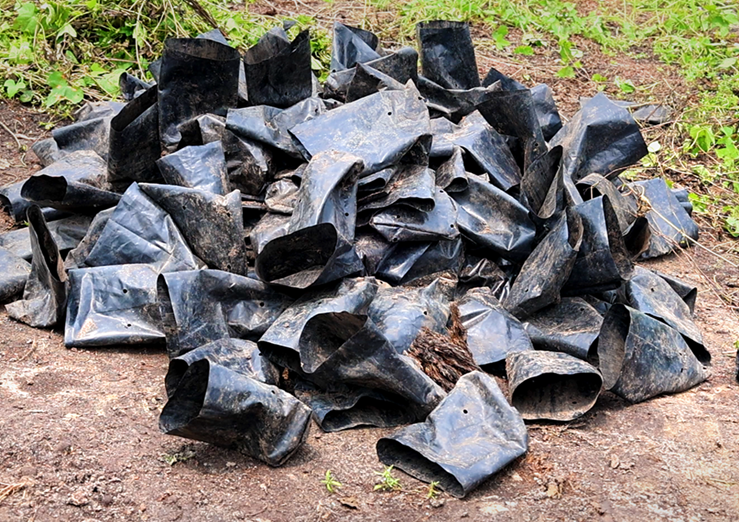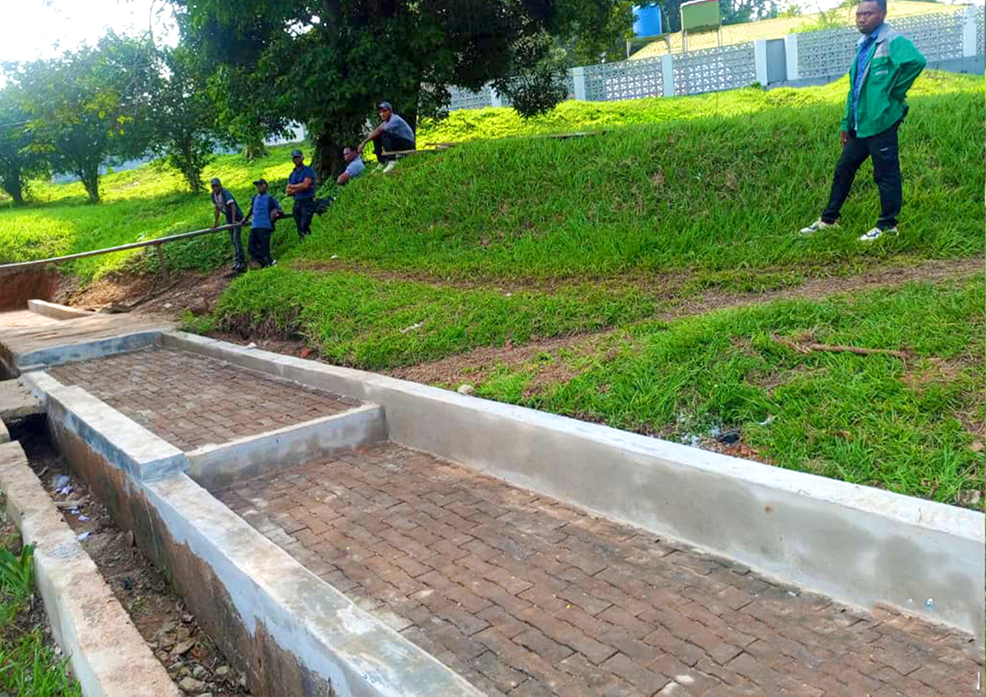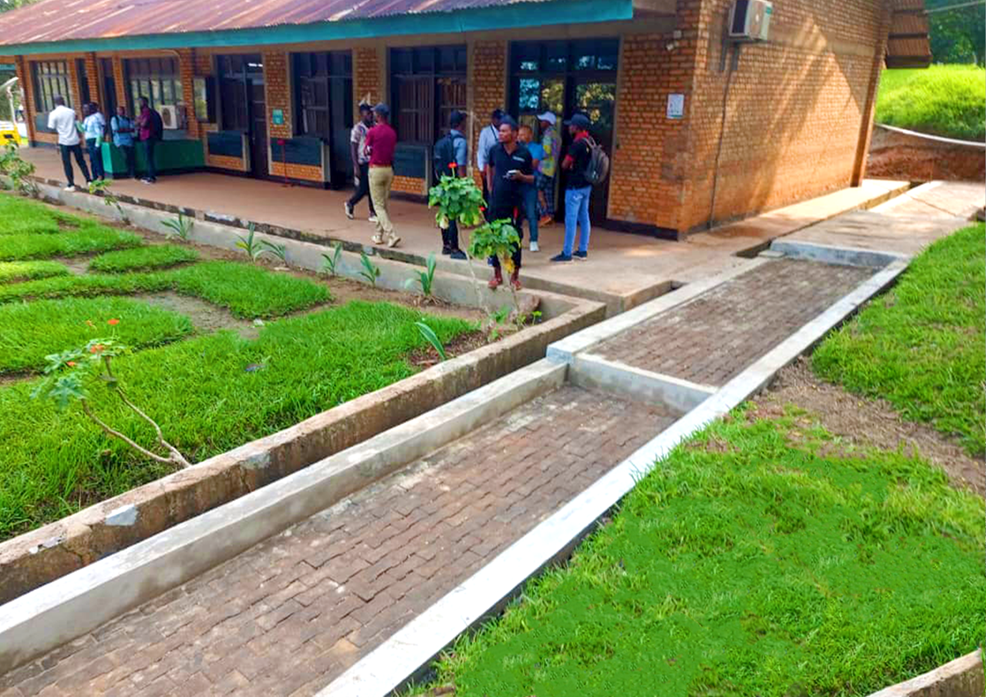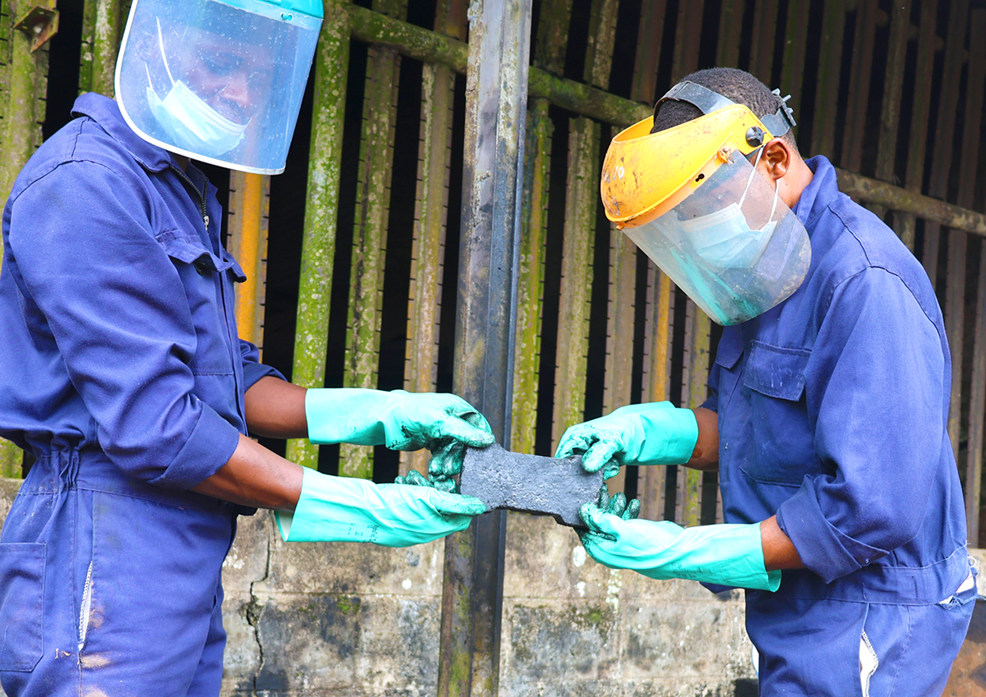On its three operational sites in the Democratic Republic of Congo, PHC is transforming used plastics into durable paving blocks, proving that waste can become a pillar of local development and a symbol of ecological innovation.
Turning an environmental scourge into a valuable resource: that’s the successful bet made by Plantations et Huileries du Congo (PHC). Since 2019, the company has turned plastic into an unexpected ally in the fight against environmental degradation, while improving the daily lives of its local communities.
As plastic pollution chokes ecosystems across the globe, PHC chose to act. On its three operational sites in Lokutu (Tshopo), Yaligimba (Mongala) and Boteka (Équateur), the company collects plastic waste from plantations, factories, administrative offices, workshops, and workers’ camps. Rather than abandoning it to the environment, its HSE (Health, Safety, Environment) department gives it a second life.

The process is as simple as it is ingenious. The plastics are sorted, shredded, and then mixed with sand in precise proportions. The mixture is compressed and molded using machines designed and built directly on-site. The result? Strong, durable paving blocks, ready to use, a concrete, locally driven innovation that can be reproduced elsewhere.
Tangible Results on the Ground
The impact is already visible across PHC’s sites. In Lokutu, the paving blocks now form the walkway linking the guest houses and beautify several areas. In Yaligimba, they cover the administrative courtyard, providing a clean, practical surface even during the rainy season, where paths once turned into muddy pools. These infrastructures are not only aesthetic: they improve the daily lives of staff and residents while spearheading a paradigm shift:waste is no longer a problem, but a resource.

A Gesture for the Environment, a Gain for Society
Behind this innovation lies a vision: sustainable development where ecology meets circular economy. By reusing plastics once considered harmful, PHC reduces its environmental footprint while creating tangible local value. These paving blocks made from recycled plastics do more than enhance infrastructure, they embody a broader commitment: to protect ecosystems while contributing to the well-being of local communities.

An Engagement That Leads the Way
Through this initiative, PHC proves that a major company can be an agent of change, combining innovation, social responsibility, and environmental performance. From waste to resource, the story of these recycled plastic paving blocks demonstrates that with a clear vision and pragmatic implementation, it is possible to reverse the trend of pollution and, literally, build a more sustainable future.



